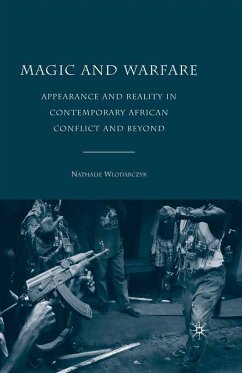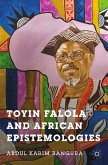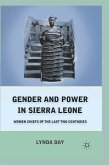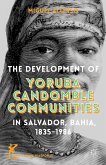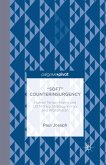Dieser Download kann aus rechtlichen Gründen nur mit Rechnungsadresse in A, B, BG, CY, CZ, D, DK, EW, E, FIN, F, GR, HR, H, IRL, I, LT, L, LR, M, NL, PL, P, R, S, SLO, SK ausgeliefert werden.
"Wlodarczyk has built on the by-now considerable body of work on the importance of belief systems in African politics to offer a systematic analysis of the role of magic in the Sierra Leone conflict. Making good use of the extensive evidence gathered by the trials on war crimes and her own field research, she provides a detailed account of the origins, organization and behaviour of the Kamajor militias that formed the core of the so-called Civil Defence Forces, which fought the rebel Revolutionary United Front. This book is a perceptive analysis of the nature of violence in contemporary Africa, which has relevance well beyond the continent. And it reinforces the argument that it is impossible plausibly to interpret political events in settings different from ours without an understanding ofthe cultural context within which they take place." - Patrick Chabal, International Affairs
"Researchers who specialize in military studies are a pretty hard-headed bunch, unlikely to spend much time thinking about the worlds of spirits. If they read this book, as they should, theymay start to do otherwise. Wlodarczyck s achievement is to show the relevance of spiritual matters for military and political affairs in many parts of the world, concentrating on Sierra Leone. I hope this book will alert many people to an aspect of warfare that is likely to grow in importance." - Stephen Ellis, Desmond Tutu Professor in the Faculty of Social Sciences, Vrije Universiteit Amsterdam
"Nathalie Wlodarczyk has done a stunning job bringing the immensely complicated, sensitive and intriguing subject of magic to the academic field. From a sound theoretical base, this book brings empirical research and meticulous insight into Sierra Leone s war and its Kamajor fighters. Magic and Warfare combines a fascinating intellectual adventure with an engaging clarity that steers the reader to a greater understanding not only of the Kamajors and the war, but of the nature of belief and its relationship with action." - Zoe Marriage, Senior Lecturer in Development Studies, School of Oriental and African Studies, University of London

